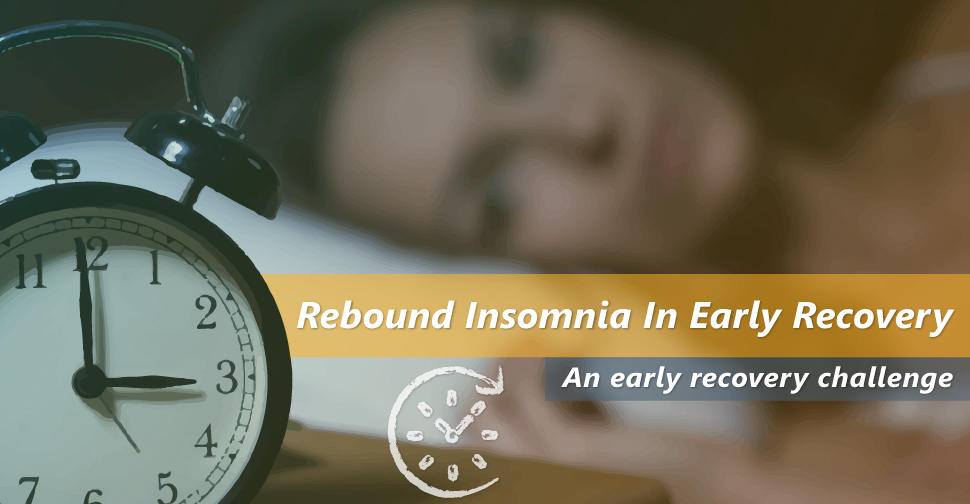
In the early stages of rehabilitation, those in recovery can experience a great deal of adverse symptoms. Unfortunately, sleep can be severely interrupted as a result of the changes that detox entails. While medically-assisted detoxification can help ease some discomfort, rebound insomnia can still be a challenge in early recovery.
How Do Drugs Cause Rebound Insomnia?
Over time, drug dependency disturbs the production of normal hormones in the body that promote sleep. As a result, your body can become dependant on these substances for sleep. And when you stop taking these substances, you may fall into an insomniac state known as “rebound insomnia.”
The sedative qualities found in drugs such as sleeping pills, marijuana, alcohol, opioids, barbiturates, and benzodiazepines can cause rebound insomnia. The body is forced to rest without the aid of substance sedation, creating a lapse in the body’s natural sleep cycle.
Symptoms Of Insomnia
Insomnia can be identified as transient (lasting a few nights), short-term (less than 10 nights), and chronic (months or years). Trouble falling or staying asleep, broken sleep, or staying awake for days can lead to many additional ailments. Some of the significant symptoms of insomnia include:
- Loss of concentration and memory
- Fatigue
- Weight gain due to decreased activity and calorie overcompensation
- Increased anxiety and depression from exhaustion
- Headaches, nausea, diarrhea, and agitation
Beyond these problems, sleep deprivation can be a serious detriment to overall well-being. In addition to good nutrition and exercise, adequate rest can greatly improve the quality of life during treatment. Identifying the symptoms of insomnia can help the sufferer take steps to find relief.
Treatment And Care
Rebound insomnia can cause relapse and while personal changes in daily life can be beneficial, medical and psychological intervention may be necessary. Relaxation can be difficult when recovering from addiction and withdrawal symptoms are uncomfortable, making it very hard to rest. Some of the recommended treatment methods for insomnia include:
- Cognitive behavioral therapy for anxiety
- Restful yoga and meditation
- Daily exercise
- Avoiding stimulants such as caffeine and nicotine
- Start to “wind down” an hour before bedtime (shut off TV/computer/phone) screens, dim lights, play soft music, etc.)
- Check prescription medications for side effects – consider alternatives with your doctor if medications cause excitability
- Limit sugar intake throughout the day
- Avoid eating or drinking before bed
- Stay hydrated
- Eat small meals throughout the day to curb reflux or gastrointestinal discomfort
- Create a reasonable sleep schedule
- Avoid rewarding yourself with things like television or surfing the internet when you can’t sleep
- Make your sleep space comfortable
- Take a warm bath before bed
- Massage, acupuncture, or acupressure
Finding relief from insomnia can make all of the difference in recovery. Over-the-counter and prescription sleep aids can cause dependency when used long-term, but may be considered if rebound insomnia is interfering with treatment. Be sure to discuss any medications with your doctor before use.
We Can Help
 The rehabilitation process can be greatly improved with adequate rest. If you or a loved one is suffering from rebound insomnia, you may need help finding relief. The caring staff at DrugRehab.org is here to help you find the right treatment options for a good night’s sleep.
The rehabilitation process can be greatly improved with adequate rest. If you or a loved one is suffering from rebound insomnia, you may need help finding relief. The caring staff at DrugRehab.org is here to help you find the right treatment options for a good night’s sleep.
